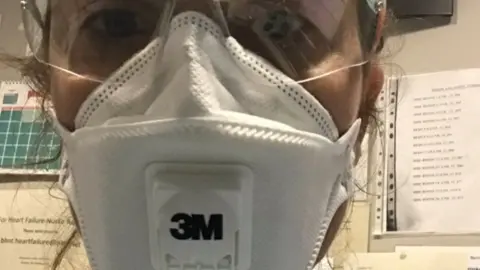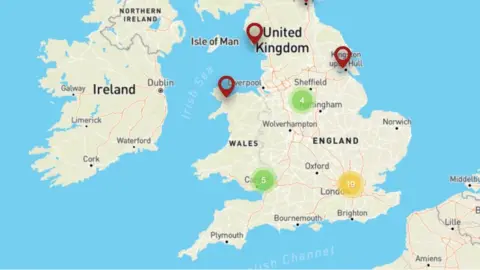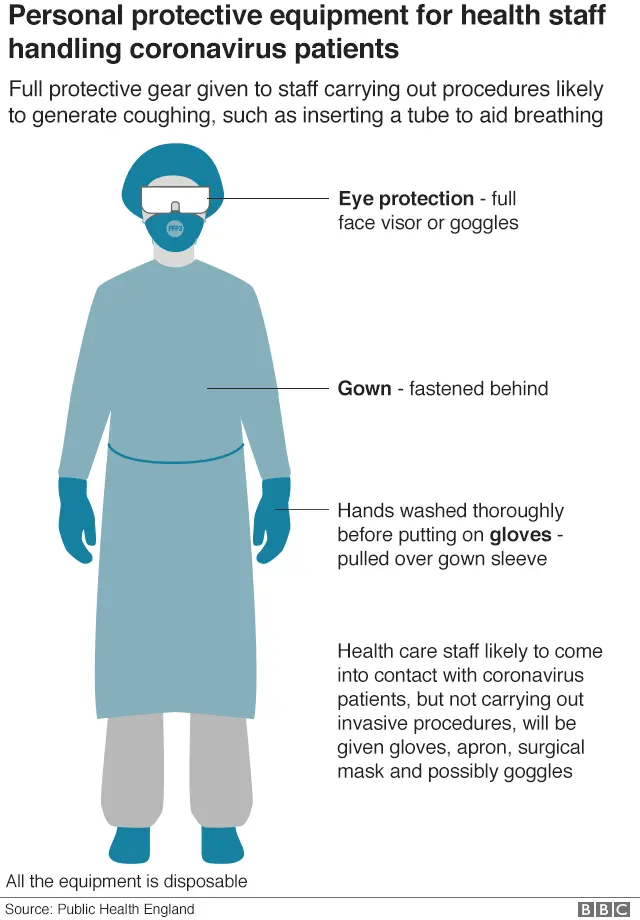Coronavirus: NHS staff use app to request crucial PPE
 Twitter/JessGaddie
Twitter/JessGaddieA new web-based app is allowing front-line workers to report personal protective equipment (PPE) shortages.
NHS staff have used Frontline.Live, launched on Saturday, to report a lack of life-saving equipment such as hand sanitiser, masks, goggles and gowns.
They can tweet the items they need, their work postcode, a photo and the hashtag #FrontlineMap or, and to remain anonymous, complete an online form.
At least 19 NHS staff have died with coronavirus.
The PPE requests are plotted on a real-time map that can be viewed by policymakers and suppliers.
Allow X content?
Frontline.Live is a collaboration between technologists, social-enterprise founders and volunteers.
It was initiated after serial entrepreneur Katz Kiely, chief executive of innovation agency Beep, and her team identified 25,000 tweets last month from NHS staff about PPE shortages.
“We just felt like we needed to make a difference,” Ms Kiely told BBC News.
Military help
 Frontline.Live
Frontline.Live“We thought if we had live open data, that could only help the decision-makers make better decisions.”
Those working in care homes and sheltered housing can also make PPE requests via Frontline.Live.

- A SIMPLE GUIDE: How do I protect myself?
- AVOIDING CONTACT: The rules on self-isolation and exercise
- HOPE AND LOSS: Your coronavirus stories
- LOOK-UP TOOL: Check cases in your area
- VIDEO: The 20-second hand wash
- STRESS: How to look after your mental health

The government says there is enough PPE to go around and it has called in the military to help with distribution.
However, many NHS workers are still experiencing shortages.
Supplies of gowns, for example, are critically low in some hospitals, according to Chris Hopson, chief executive of NHS Providers in England.

Royal College of Surgeons of England president elect Prof Neil Mortensen said: “We need to protect our medical, dental and nursing staff as they put themselves in harms way for us.
“Ready availability of appropriate personal protection equipment is the key to keeping them safe.
"An open data platform that shows front-line needs in real time can help us do just that.”
